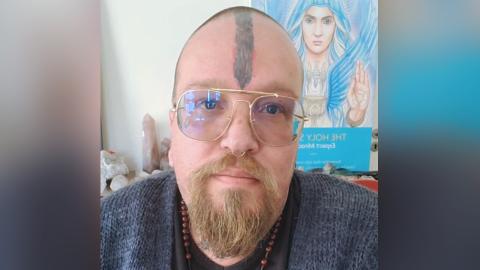
Supreme Court to Hear Case Against Colorado's 'Orwellian' Order that Forces Christian Artist to Violate Her Beliefs
The U.S. Supreme Court agreed Tuesday to take the case of a Denver-area website designer who argues a Colorado state law violates the free speech of creative professionals whose religious beliefs do not conform to state-sanctioned doctrine.
As CBN News reported last October, web designer Lorie Smith asked the high court to hear her case in hopes that it will rule that she doesn't have to express unbiblical messages and celebrate events that violate her First Amendment rights.
In July, the 10th U.S. Circuit Court of Appeals ruled 2-1 against the artist, ordering her to design wedding websites for same-sex couples. The judges also said Colorado can prohibit Smith from even explaining on her social media page which websites she can create based on her religious beliefs.
The law, referred to by the dissenting 10th Circuit judge as an "Orwellian diktat," is the same one that continues to threaten Colorado cake artist Jack Phillips of Masterpiece Cakeshop.
Alliance Defending Freedom (ADF), which represents Smith, argues the law forces her to violate her Christian beliefs.
"The government doesn't have the power to silence or compel creative expression under the threat of punishment. It's shocking that the 10th Circuit would permit Colorado to punish artists whose speech isn't in line with state-approved ideology," said ADF General Counsel Kristen Waggoner, Smith's attorney. "Colorado has weaponized its law to silence speech it disagrees with, to compel speech it approves of, and to punish anyone who dares to dissent. Colorado's law—and others like it—are a clear and present danger to every American's constitutionally protected freedoms and the very existence of a diverse and free nation."
***Please sign up for CBN Newsletters and download the CBN News app to ensure you keep receiving the latest news from a distinctly Christian perspective.***
After the 10th Circuit's ruling last July, Ed Whelan, a Distinguished Senior Fellow of the Ethics and Public Policy Center, wrote in the National Review that the lower court's decision was against free speech. He also offered a window into how a conservative-leaning Supreme Court might rule in favor of free speech for web designers.
"It is a 'fundamental rule of protection under the First Amendment, that a speaker has the autonomy to choose the content of his own message,'" Whelan wrote.
"Appellants' creation of wedding websites is pure speech. The websites Appellants intend to offer 'celebrate and promote the couple's wedding and unique love story' by combining custom text, graphics, and other media. The websites consequently express approval and celebration of the couple's marriage, which is itself often a particularly expressive event," he continued.
"The Accommodation Clause (of Colorado's Anti-Discrimination Act) forces Appellant to create websites—and thus, speech—that they would otherwise refuse," Whelan wrote.
"More broadly, it is difficult to imagine a ruling more hostile to free speech," he noted.
The case is expected to be argued in the fall.
As CBN News has reported, Denver-based baker Jack Phillips is a cake artist who first came under fire for declining to bake a wedding cake for a same-sex couple. He serves everyone at his store, but he's unable to create specific messages celebrating events that violate his biblical beliefs.
He's been battling in the courts for years, and even though the U.S. Supreme Court once ruled in his favor, he lost a case earlier this year after a judge ruled in favor of an activist who targeted him by requesting a cake that celebrated a transgender transition. Phillips is also represented by ADF.
And Phillips is not the only one targeted. For years, the state of Colorado has relentlessly taken aim at certain speakers, and other states have followed its example.
As the ADF explained in a brief asking the high court to accept Smith's case, "The First Amendment's promises of free speech and religious liberty are bedrock principles. Yet over the past decade, those promises have been shattered: Elane Photography and Sweet Cakes are out of business, Barronelle Stutzman was forced to retire, Emilee Carpenter is risking jail, Bob Updegrove and Chelsey Nelson are in harm's way, and Jack Phillips is still in court, pursued by a private enforcer who wants to finish the job. This Court must act now or officials with enforcement power over nearly half the country's citizens will continue compelling artists to speak against their consciences while silencing them from explaining their beliefs."
Sixteen states, 45 members of Congress, and numerous legal scholars, economists, publishers, media organizations, and others filed friend-of-the-court briefs in support of Smith's petition.




